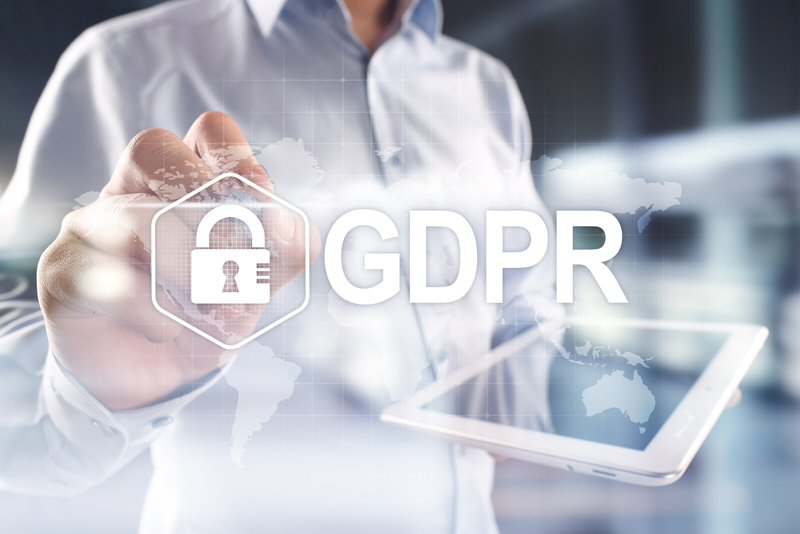Managing huge volumes of documents has become a major challenge for business organizations. Recognizing, analyzing and extracting data from various vital documents helps businesses to make the right decisions. Document management – which deals with creating, scanning, storing and controlling documents, has become increasingly significant due to the General Data Protection Regulations (GDPR) which came into effect in 2018. Being GDPR-compliant has become an important consideration in the way data is stored, handled, and processed. Most firms depend on data processing services to manage huge volumes of data. To comply with GDPR, it is important to look at how huge volumes of documents and data are currently managed within your company, and for this most firms rely on data processing services.

Understanding GDPR and Its Implications
The GDPR is a uniform law applicable across the European Union (EU), which enforces the data protection rules and regulations. The law implements common data security ideas such as minimizing the collection of personal data, deletion of personal data that is not required any longer, restriction of access, and data security during the entire lifecycle. There is no specific restriction based on location, company size or scope of business, meaning any entity with an internet presence will be affected. The GDPR aims to safeguard personal data like names, phone numbers, addresses, account numbers and other personal documents (likeemail and IP addresses). Typically, such information is stored by business entities as customer information (in CRM solutions) and employee information (in HRM systems).
When compared to the previous Data Protection Act, the increased liability and heavy fines serve to shift focus on preventive measures and audits regarding how and where data are stored and destroyed. The penalties for non-compliance are quite significant in this area. Data protection watchdogs can impose a fine of up to 20m € or 4 percent of the total annual worldwide turnover of the preceding financial year, whichever is higher.
An important issue regarding data security regulations is the major difference in the specific approach towards data collection in the United States and EU. In the United States, personal information in most cases is collected as a matter of course, with only an “opt-out” offered to consumers. By contrast, GDPR requires that in order to collect information from EU data subjects, an affirmative ‘opt in’ consent must be obtained that clearly specifies how the data will be used. Privacy policies must clearly match.
Processing data in line with GDPR legislation requires adhering to the following key principles –
- Data must be collected transparently
- Data must not be stored for any longer than necessary
- Data must be collected for a legitimate and clearly defined purpose
- Data must be accurate, up to date and relevant to its purpose
- Controllers must be able to demonstrate their compliance efforts
- Appropriate security protocols must be upheld at all times
GDR Compliance with DMS
With increase in data breaches, content security is an important concern for businesses. As a company, it is important to protect vital business information and related customer details. No matter whether the information relates to corporate company details, intellectual capital, financial details, research, training or information about top customers – it is important to make sure that your data remains secure. In addition, it is difficult for companies to know how many paper documents actually exist. Duplication on photocopier, removal of documents from your office and insecure disposal of documents can all lead to the existence of several copies of the same document, which is again a problem according to GDPR standards.
A document management system (DMS) organizes and control documents throughout the organization by storing, retrieving, managing, and tracking electronic documents as well as scanned images of paper documents. With the use of document management scanning, paper-based information can be captured and managed in a much more secure and efficient way. They keep track of the document lifecycle and the audit trail. Utilizing a DMS will enable you to control and organize documents across your entire organization, which make your business GDPR-compliant.
The ability to capture, manage, and control access to the increasing multitude of records and other documents your business handles (both digital and printed), DMS offers many key benefits –
- Fast document retrieval
- Robust disaster recovery
- Reduced storage requirements
- Greater workflow efficiency
- Centralized security
- Better collaboration
Here are the key elements of the GDPR rules and how a DMS will help address each specific element –
- The right to be forgotten – As per the new rules, an individual reserves the right to request the deletion or removal of personal data when they see no compelling reason for its continued processing. By using a DMS, requests such as these can be easily handled and completed in a timely manner. As all files are stored in one central location, finding the relevant files is simple and more efficient. This gives you confidence that all files can be found easily and erased thereby ensuring GDPR compliance.
- The right of access – GDPR enforces that individuals have the right to obtain access to their personal data. The information must be provided to the individual (making the request) using “reasonable means” and within one month of the receipt of the request. With DMS, information can be accessed quickly and easily, and can be sent to individuals exercising their right of access within the stipulated period. Furthermore, audit trails for documents, including access to recycle bins in system wide searches, make it possible to retrieve documents that are accidentally deleted, ensuring that these data will be easily retrievable in order to be passed on quickly.
- Encryption – Encryption of data is an important aspect of being GDPR compliant. A ransomvirus can easily access your organization’s data like – employee records, bank details and more. However, with a DMS in place, all specific files are encrypted upon the first entry and documents are held as images. This ensures that all your specific documents and data remains protected even at the time of an attack.
- Privacy by design – GDPR requires businesses to give data privacy due consideration all through the initial design, maintenance, and operational phases of information systems. This data privacy feature includes – training employees to handle documents consistently, following standard procedures and protocols, and restricting document access to authorized personnel only. A DMS ensures that the same processes and protocols are followed across the board.
- The right to data portability – This feature allows individuals the right to move, copy or transfer personal data easily and securely from one IT environment to another. For instance, if a customer plans to switch to another organization, their data should be made freely available to the new firm and within one month of the request. The use of a document management solution will ensure that companies comply with this element within the mandated time period.
- Breach notification standards – Under the new GDPR rules, organizations need to disclose any personal data breaches to the Supervisory Authority (SA) within 72 hours of detection. On the other hand, if there is an actual risk to the rights and freedom of an individual (in some special cases), the individual must also be notified. A DMS can detect such breaches and will report them immediately. With privacy and important feature of the new GDPR rules, you can ensure data is not accessed mistakenly and is always stored in a highly secure manner.
- Role-based access control – GDPR criterion ensures that key information is locked or secured not only from the outside world but also within the company itself. For instance, if a marketing manager in a company need to have access to a customer’s direct debit, or a temp to be able to email or print documents – he/she should have access to all specific information associated with their job profile. With DM, rules can be put in place so that information access can be restricted.
- Retention control – Although, GDPR rules do not stipulate any specific time periods for retaining personal data, the law does require that personal data must be retained only so long as it is necessary for processing. Organizations therefore are required to base their retention policies on the nature of their business and their industry. Data must be used only for the intended purpose when they were obtained and should not be retained indefinitely. For example, financial documents must be stored for up to 7 years, but CVs should be destroyed as soon as a position has been filled – no need to store someone’s personal information at this point. DMS can be effectively configured across the business to correctly store personal data and flag any documents or delete information or a part of it that is no longer needed or that have reached the correct time frame for deletion.
Efficient management of documents and data will save time and also increase productivity and efficiency, while improving the workflow as well. A document management system is critical not only to streamline access to information and improve efficiency, but also to meet compliance obligations. Implementing an intelligent document scanning and data management system with the help of a reliable document scanning company can ensure accurate data conversion and efficient management.



